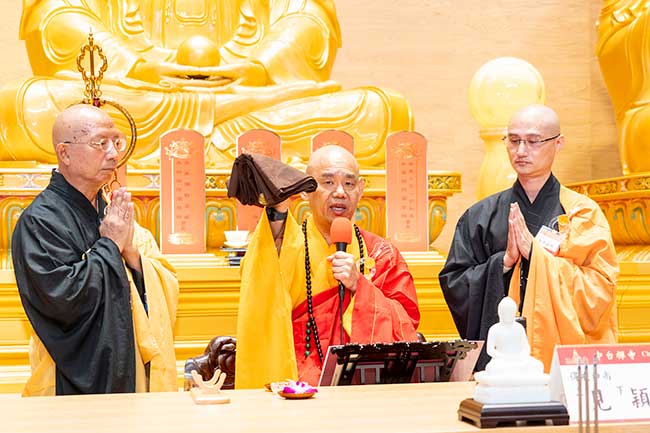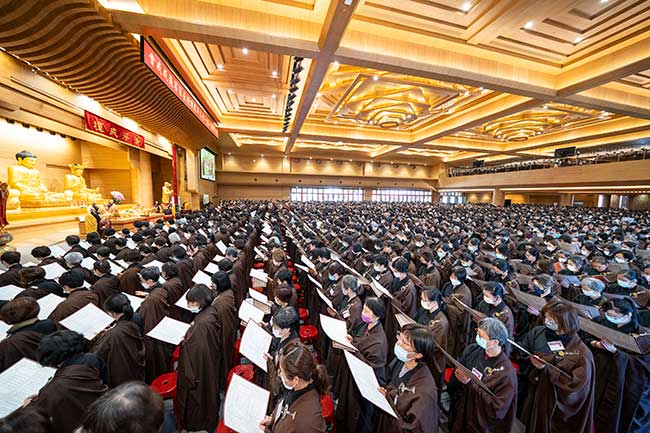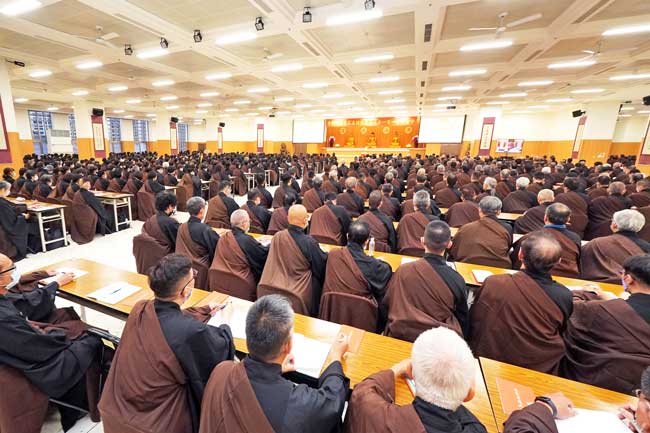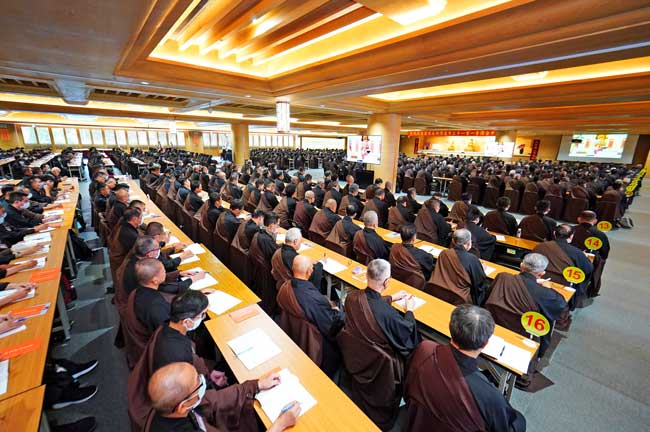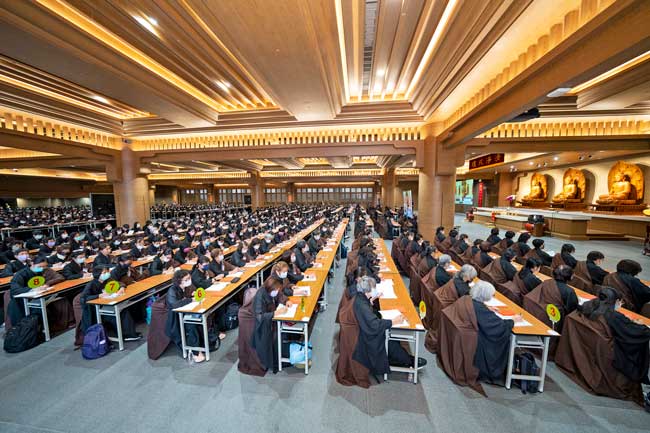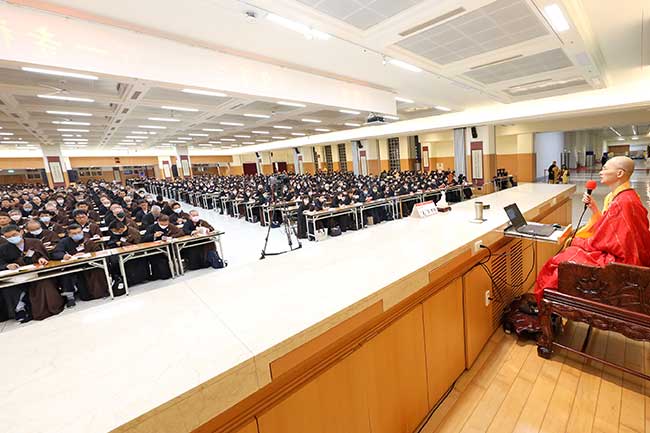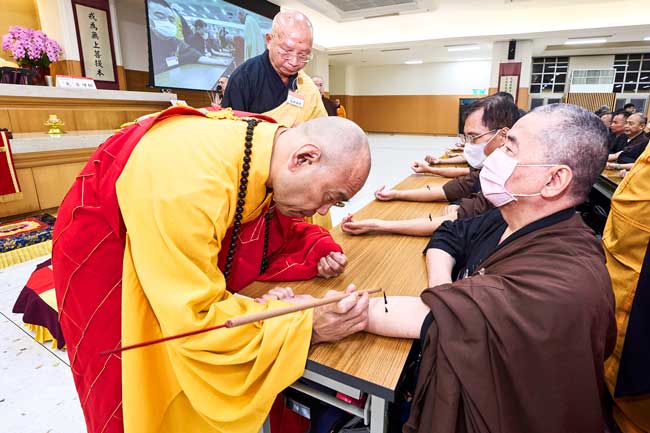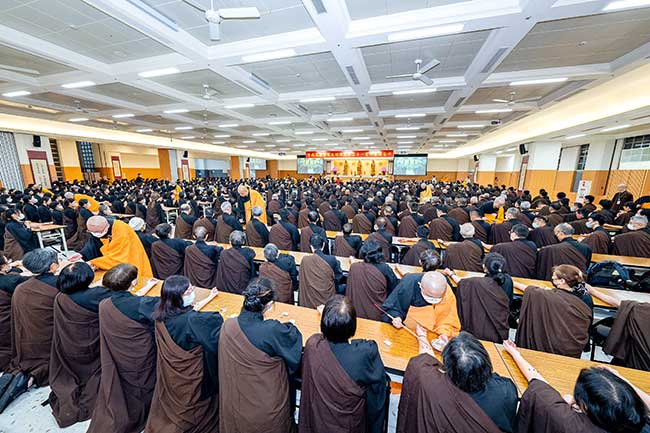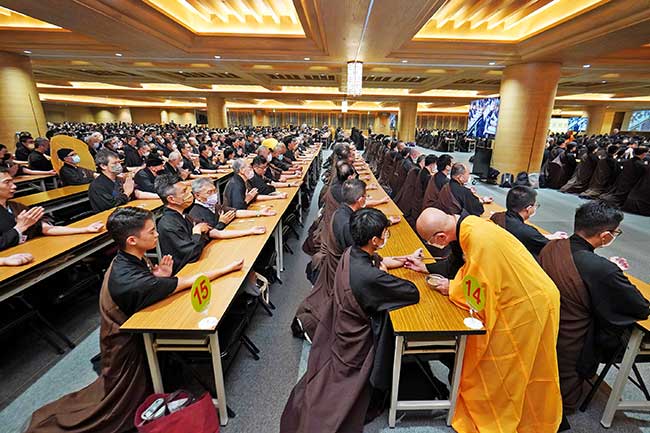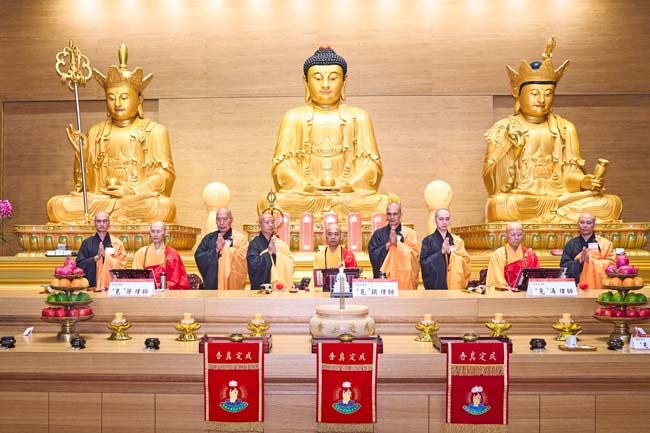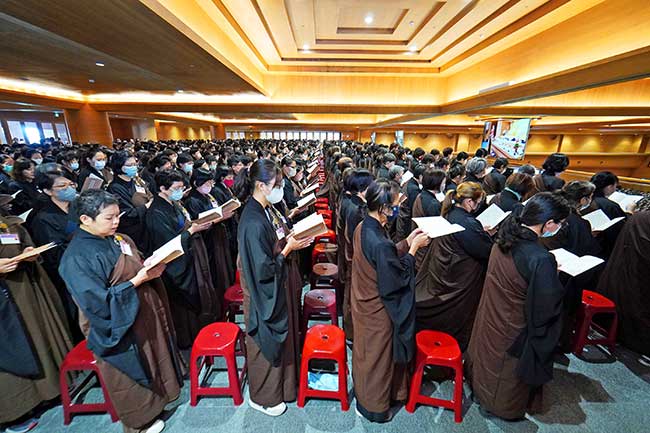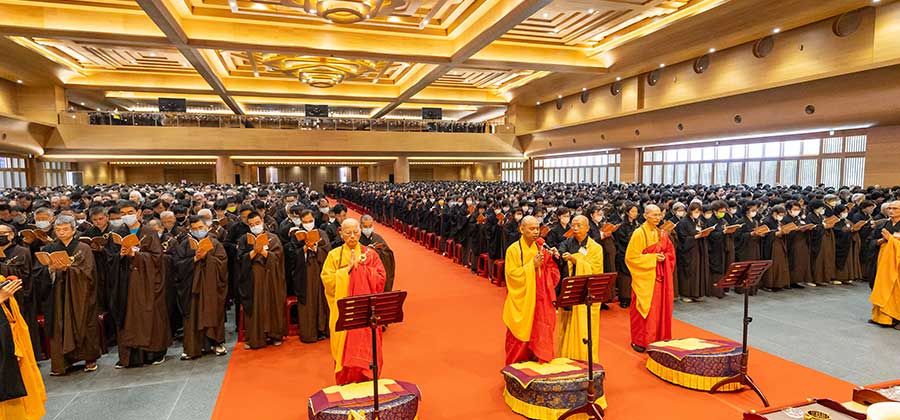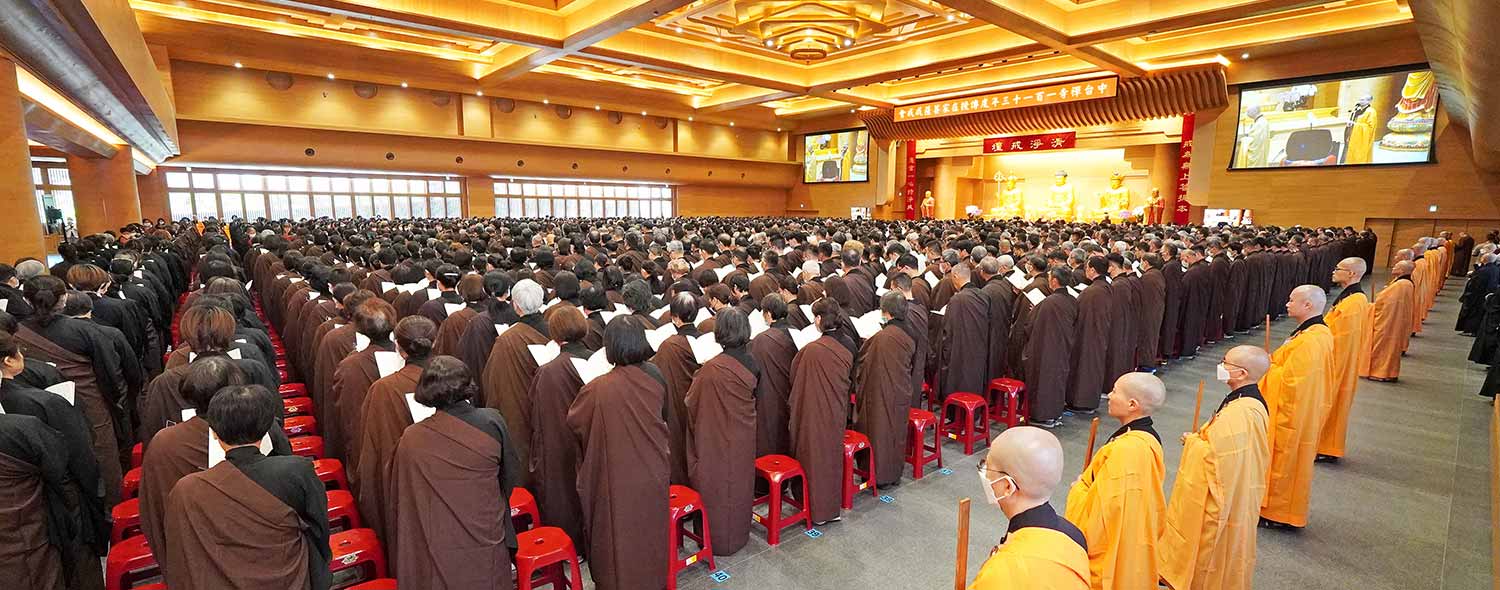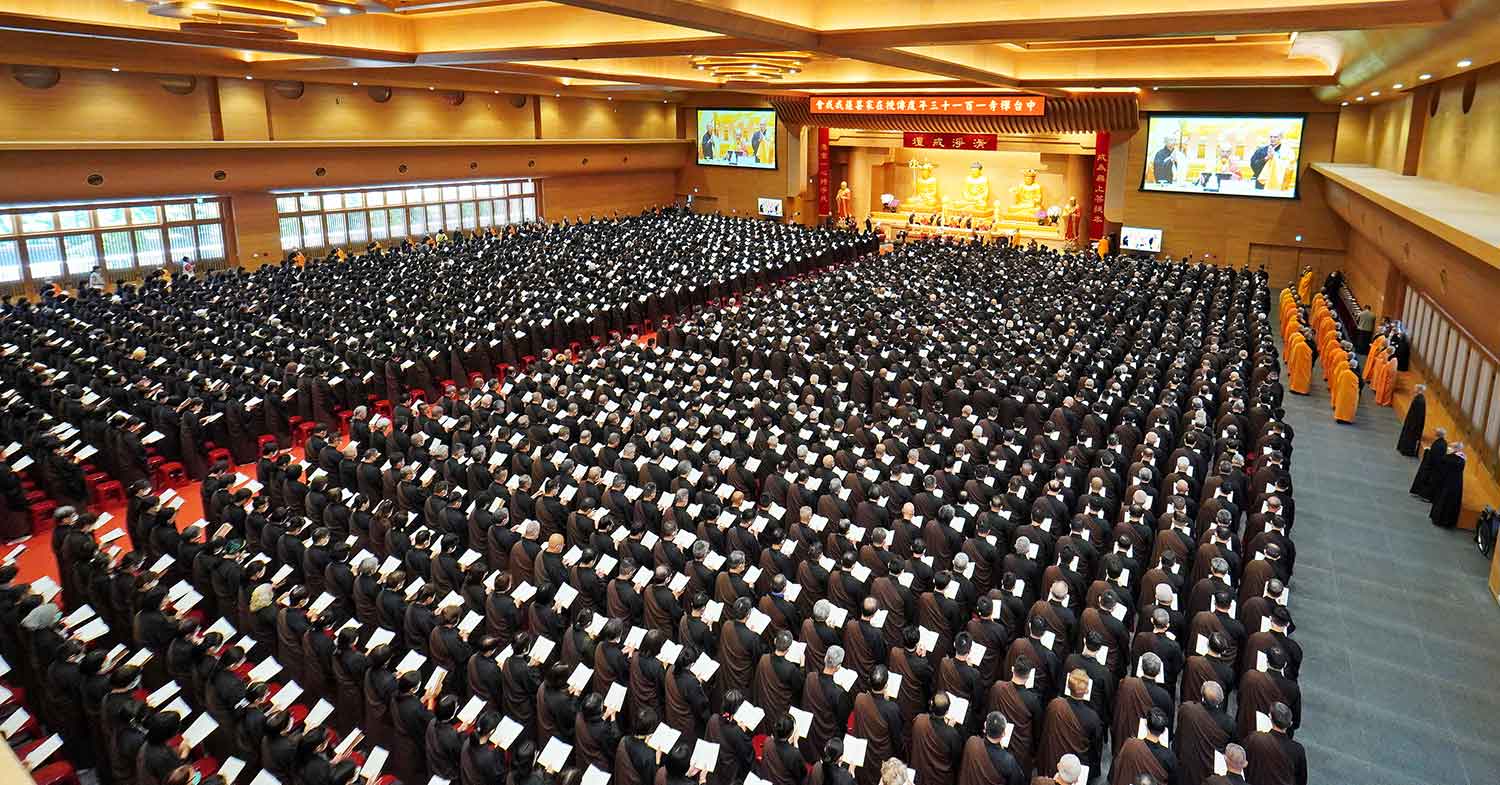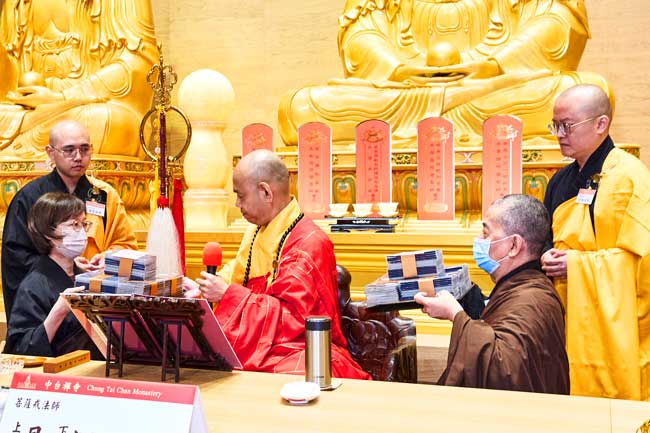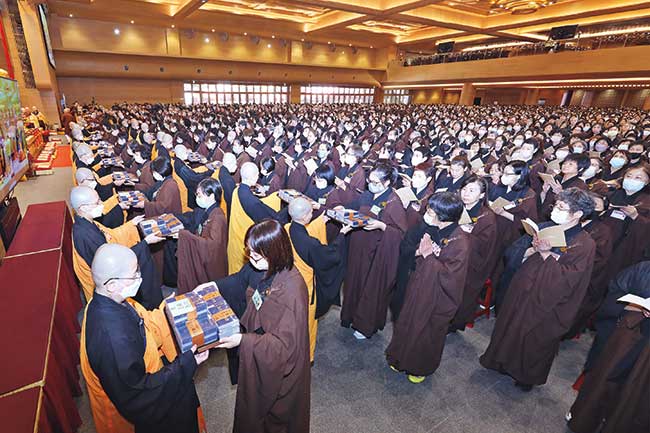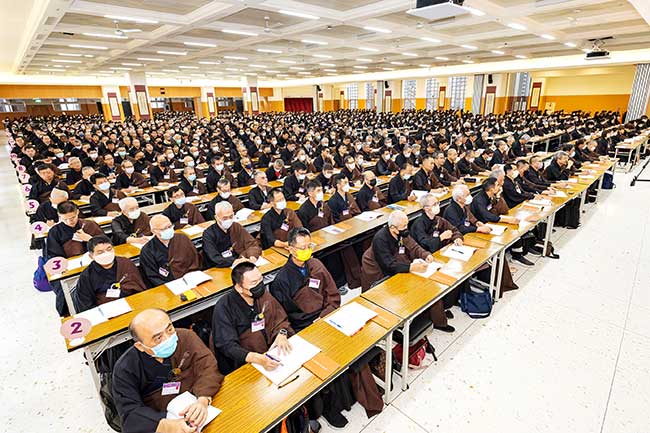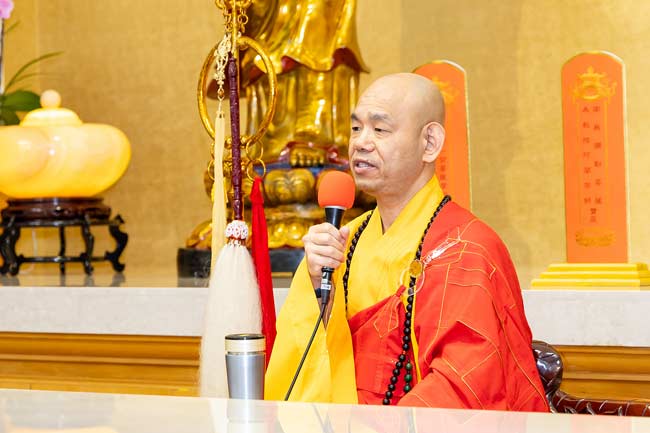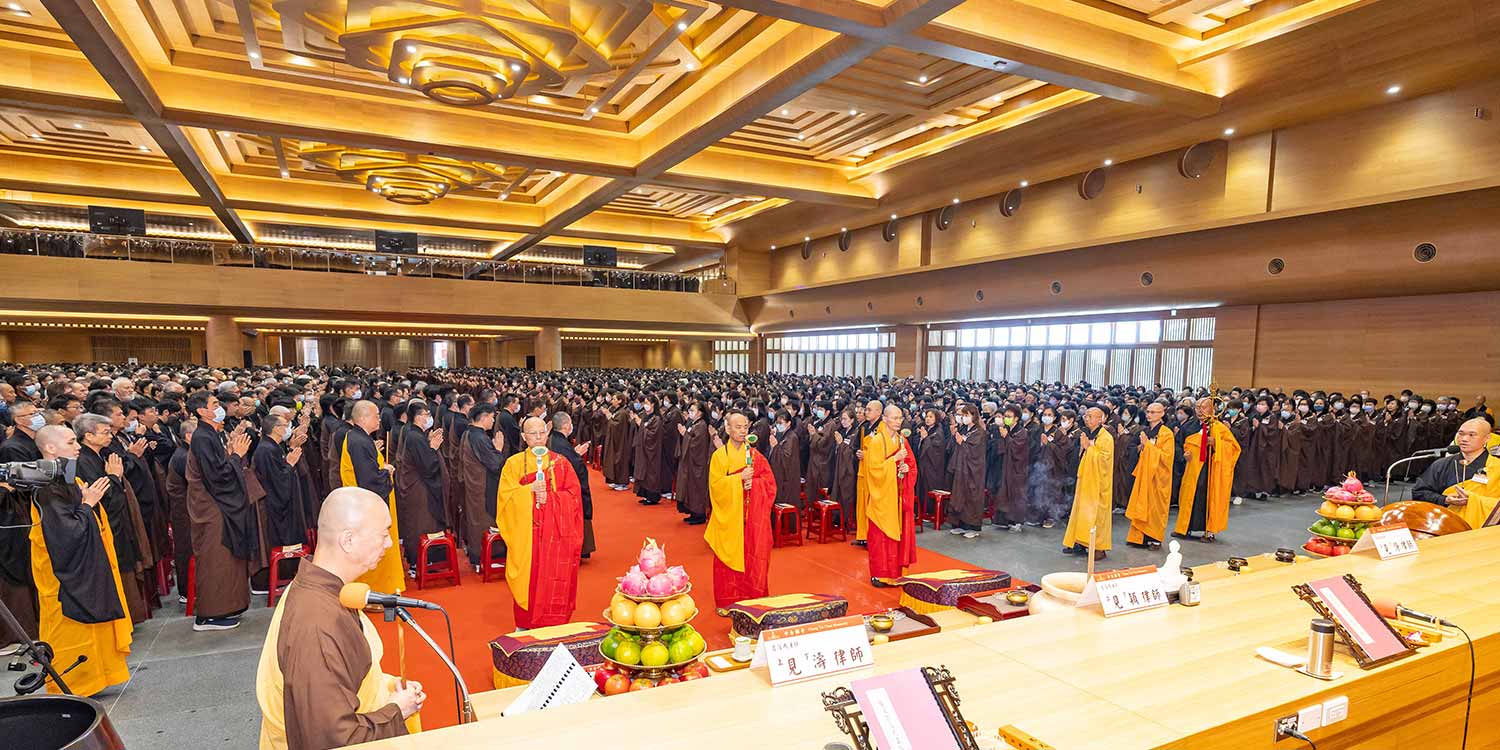
2024 Lay Bodhisattva Precepts Transmission Ceremony at Chung Tai Chan Monastery
The sutras declare: “Precepts are like the radiant sun and moon, gleaming as brilliantly as a jeweled necklace. Guided by this luminosity, countless bodhisattvas attain enlightenment.” The bodhisattva precepts are the ethical guidelines for practitioners of the Mahayana path. Following the Buddha’s compassionate vow to liberate all beings, and in response to the sincere requests of practitioners worldwide, Chung Tai Chan Monastery hosted the Lay Bodhisattva Precepts Transmission Ceremony from October 10th to 13th, 2024.
Venerable Master Jianying, the Abbot of Chung Tai Chan Monastery; Venerable Master Jiantao, the Vice Abbot of Monastic Affairs, and Venerable Master Jiandi, the Dean of the Chung Tai Buddhist Institute for Monks, were respectfully invited to serve as the three Celebrant Masters, and fulfill the aspirations of those seeking to receive the Mahayana bodhisattva precepts.
A Global Gathering in Pursuit of Purity
By 6:00 p.m. on October 10th, over 4,000 preceptees from the United States, Italy, Australia, Japan, Thailand, the Philippines, Hong Kong, and Taiwan, along with more than 1,200 lay volunteers, had gathered at the monastery. All embraced this rare opportunity to cultivate merit by receiving and protecting the precepts and attain the supreme bodhi path.
During the ceremony, the devoted participants observed noble silence to calm their minds and let go of distractions. They upheld the Three Refuges, Five Precepts, Eight Precepts, and Bodhisattva Precepts. Through chanting, prostrations, offerings, listening to teachings, and repentance practices, they diligently integrated conduct and understanding to pave the way for awakening.
Taking the Three Refuges and Eight Precepts
At 8:30 a.m. on October 11th, all participants assembled in Perfect Illumination Lecture Hall. Venerable Master Jianying, serving as the Precept Master formally conferred the Three Refuges, Five Precepts, and Eight Precepts.
The precept master meticulously proclaimed the precepts and asked “Will you uphold them?” All the disciples firmly answered, “Yes, I will.” Venerable Master Jianying encouraged all to cultivate and diligently avoid transgression. Under the Abbot’s guidance, the assembly repented sincerely and vowed to uphold the precepts as a foundation for ceasing harm, fostering virtue, and benefiting all beings.
